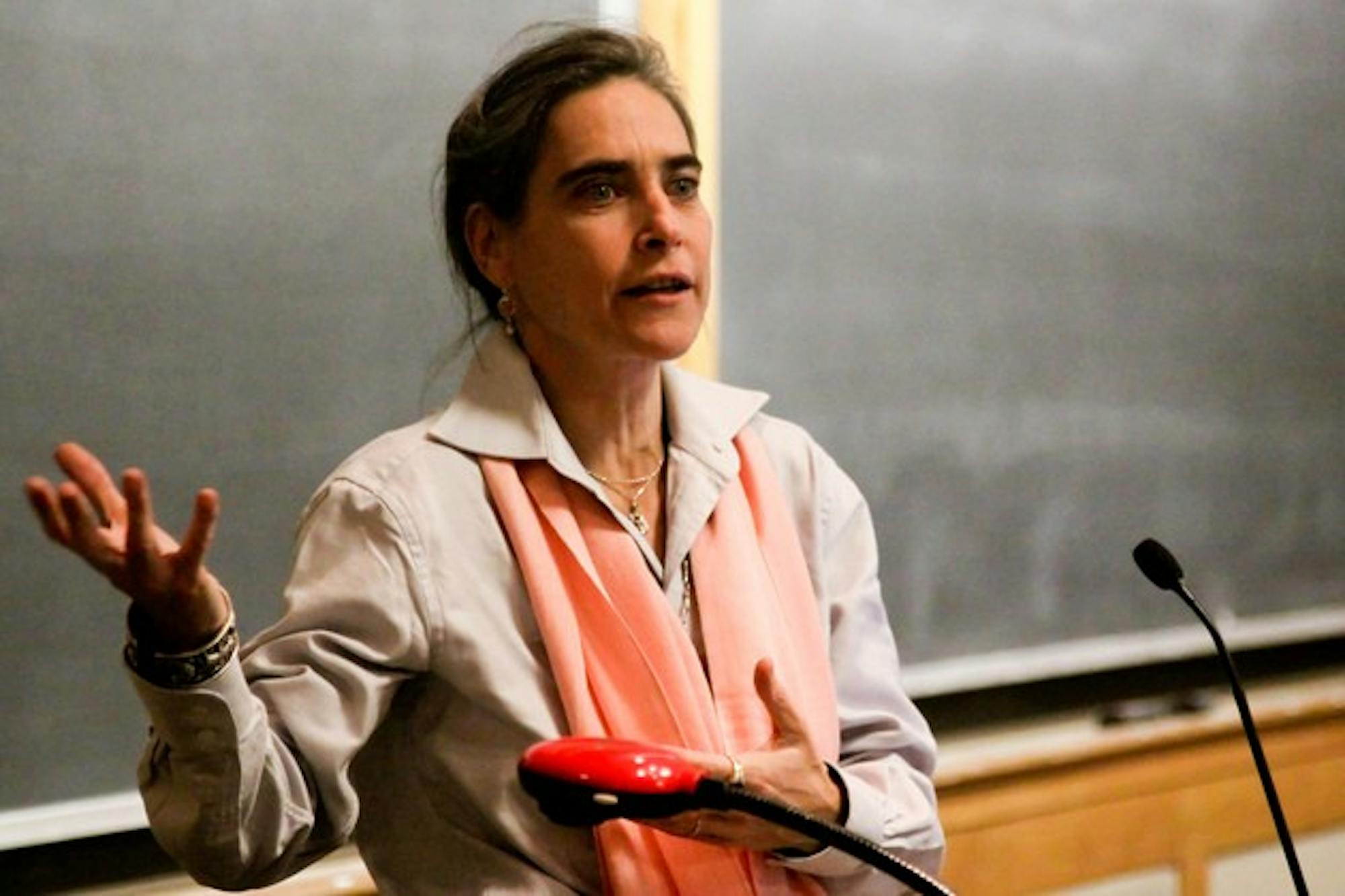The U.S. army enlisted the help of exiled Afghan warlords to fight the Taliban in Afghanistan, operating under the principle that "the enemy of our enemy is our friend," Chayes said. The warlords' return to power, however, frustrated the Afghan people, who grew to resent the American involvement, she said.
"We were so focused on terrorism, and so focused on al-Qaida, that so long as those guys seemed to be giving us intelligence against terrorist suspects or targets, we didn't really care how they keep the people," she said.
Afghanistan's current government, which receives significant international support, is fraught with corruption, Chayes said, explaining that Afghans are dissatisfied and turn to the Taliban as a form of resistance.
Many Americans do not understand that Afghan support of the Taliban is not necessarily motivated by religious convictions, Chayes said.
"[Americans] see this as a religiously based insurgency," she said. "We don't see it as being fed by rage at a very secular problem."
After the recent Afghani election of President Hamid Karzai, America's insistence on a second election was ill-advised, Chayes said, because of the difficulties of ensuring a fair vote. The United States should more strongly encourage that Karzai adhere to national laws, promote efforts to eliminate voter fraud and cut down on presidential protection of cronies in public office, Chayes said.
Chayes, who said she "embedded" herself in the local culture during her time living in Afghanistan, said Americans have many misconceptions about the Afghan people.
"There have been some analyses that just don't add up to what I've experienced in Afghanistan," she said. "And one of them is that Afghans hate foreigners."
Chayes reported from the city of Kandahar in the days following the fall of the Taliban regime and described the people's reaction as subdued but "100 percent" supportive of the international involvement.
"Afghans are really practical, and they understood that they had been cut off from the international community for the last 30 years," she said.
Another misconception, according to Chayes, is that all Afghan officials are corrupt. The difficulties that the government currently faces result from the president's poor appointments, rather than corruption "endemic" to the country.
Chayes suggested looking "outside the system" for talented people to run for office, but acknowledged some of the difficulties of turning too much toward a "sub-national government," or one that would shift the focus away from a strong national presidency.
Provincial elections, she said, are even more corrupt than national ones.
Chayes, who also advised McChrystal's predecessor, retired Gen. David McKiernan, said she has seen significant change since becoming an adviser, specifically citing the military's acknowledgement that the situation in Afghanistan is both a crisis of confidence and a violent insurgency.




